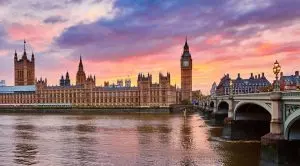 According to the authors of a new paper report published in the British Medical Journal (BMJ), UK gambling legislation should see some radical changes brought to life, including a compulsory tax on the industry, in order for local lawmakers. The researchers insist that such an overhaul is necessary, as the authorities need to address the gambling-related harm inflicted on communities and society, which has remained vastly underestimated over the past few years.
According to the authors of a new paper report published in the British Medical Journal (BMJ), UK gambling legislation should see some radical changes brought to life, including a compulsory tax on the industry, in order for local lawmakers. The researchers insist that such an overhaul is necessary, as the authorities need to address the gambling-related harm inflicted on communities and society, which has remained vastly underestimated over the past few years.
The study which has been recently published in the BMJ said that large investment and UK gambling legislation changes are needed in order for the competent authorities to properly address the growing impact which gambling has on society at a time when gambling-related harm is getting widely described as a public health issue. As explained by the researchers, the overall extent of gambling and its cost has been largely underestimated in the UK. According to estimates, the country has spent less than £1.5 million on gambling harm prevention activity in 2018.
The BMJ paper urged British lawmakers to consider unveiling a new Gambling Act that would properly address the increasing problems related to gambling addiction. For the time being, estimates have shown that there are about 430,000 problem gamblers in the country, with only one National Health Service (NHS) clinic which specialises in gambling addiction treatment in the UK.
Sports Minister Mims Davies Still Claims Voluntary System Works
 The authors of the report, academics from the UK and Australia, are trying to push the Government towards a revision of the existing Gambling Act of 2005. They insist that a mandatory levy needs to be imposed on the gambling industry in order for more funds to be generated by the operators themselves. Such a system would come as a replacement for the current one, under which gambling operators are required to pay a voluntary levy amounting to 0.1% of their gambling revenues.
The authors of the report, academics from the UK and Australia, are trying to push the Government towards a revision of the existing Gambling Act of 2005. They insist that a mandatory levy needs to be imposed on the gambling industry in order for more funds to be generated by the operators themselves. Such a system would come as a replacement for the current one, under which gambling operators are required to pay a voluntary levy amounting to 0.1% of their gambling revenues.
Previously, the gambling charity organisation GambleAware has called for a mandatory levy at a higher level to be imposed on the gambling sector – a demand which has been backed by the UK Gambling Commission (UKGC) and the Labour Party. The Sports Minister Mims Davies, however, has recently claimed that the voluntary system did work.
In addition, the researchers believe that the Department for Digital, Culture, Media and Sport (DCMS) needs to shift its responsibility for gambling to the Department of Health and Social Care (DHSC).
The paper, published in the BMJ, says that there are currently 33 million active gambling accounts in the UK. The information in the report also says that the prevalence of online gambling has risen from less than 1% in 1999 to 9% in 2016. What is even more disturbing is the fact that about 14% of children aged 11 to 16 have been found to have gambled. Moreover, about 55,000 children have been categorised as problem gamblers.
Unfortunately, the past few years have seen gambling become more and more associated with wide-ranging harms that typically spread not only to individuals who gamble but also to their families and could lead to relationship breakdowns, financial problems, disturbed educational and professional progress.
- Author


